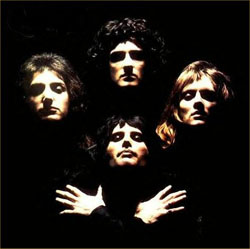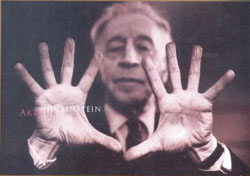I first heard most of Chopin’s music with the performances of Arthur Rubinstein (released by BMG). These recordings are quite possibly the standard for Chopin’s music, 90% of which is for solo piano. This box set (11 CDs total) also includes both of Chopin’s concertos but a number of works are missing. This set doesn’t pretend in any way to be a ‘complete’ Chopin (some notable solo pieces are missing – especially the etudes), but if you are going to grab a strong representation of Chopin’s work it would be hard to find a better choice then this one.
Idil Birit also did an excellent set of recordings of Chopin’s work on Naxos. She is a wonderful pianist and the recordings are very well done. But one drawback to that box is the feeling that there was a time table set to get the complete Chopin piano works compiled, and as a result there is an unevenness in the performances. None are bad… and her sense of tempo and the all important ‘Chopin rubato; is certainly there, but there are a number of pieces that feel like she isn’t as familiar with them. And while there are many advantages to grabbing all of something in a single box, with only a few exceptions do I really think it is a good idea – especially if that box is part of a ‘project’. One of the things that I think makes the Rubinstein box stand out so well is that it is compiled from recordings that span over two decades. So what you get are recordings that capture not only a huge amount of Chopin’s music, but a significant chunk of Rubinstein’s career. You don’t get a sense with these performances that anything is filler, or being performed to satisfy a completist goal. They all sound quite personal. And though it could be argued that there are probably better recordings of the Nocturnes (for example – I once had a great argument about the Rubinstein vs. the Ashkenazy recordings) I think it would be hard to say that there are any other recordings that feel like you have a performer and composer so close to each other. And you as the listener is brought in close as well. I could probably go into the Romantic notions about why so much of Chopin’s music is written for solo piano, but I would rather just say that this music really is made for a small audience. On a concert stage they seem out of place. But in the studio space where these were mostly recorded, a sense of intimacy is captured that many recital or modern recordings seem to miss. I wouldn’t say they feel like Rubinstein is here in the room with me, but I feel like these are recordings that capture a sense of small space. And that is how I like to hear Chopin played.
So from the small space to the stadium – ‘The Queen’s Jewels’ is a blue velvet box set containing Queen’s first 8 albums (basically all the albums from the 70s). This of course includes Wayne and Garth’s favorite and the theme song to the Met’s 1986 World Series victory. Of the later – whenever I hear ‘We Will Rock You’ start, I generally can’t wait to get through the first 1:15 or so of the song. I can understand how the drums, hand claps and group of voices yelling ‘We Will, We Will Rock YOU!’ can get a stadium full of people pumped up, but it is the slow swell of Brain May’s guitar that makes this song for me. What an amazing guitarist, with an amazing guitar sound. And it is when he finally cuts off the singing with that amazing solo that the song FINALLY does start to rock.
Queen has been one of those bands that has never been at the forefront of my musical tastes. I think they are great, and there is even a nod to ‘Killer Queen’ in one of my pieces. But I rarely think ‘I’m in the mood for listening to Queen’. But then they come on and I have a great time, only to repeat the cycle. But I have seen the fanaticism they can inspire. When I was 16 and first working at Tower Records, one of my fellow employees (Thad) was one of the first people I had to ever really spend time with and I didn’t get along with. The guy was an ass… abrasive, rude and … well, mostly filled with hate. I heard Ministry for the first time because Thad was playing it and I think this was generally on the timid side for him. Anyways, the day Freddie Mercury dies I come into work, and Queen is playing VERY loudly in the store. And there is Thad behind the counter, tears streaming down from behind his black sunglasses onto his black leather vest. On the dry-erase board behind the counter is a red and black dry-erase homage to Freddie. And the second I walk in, he just storms into the back room, leaving me to run the record store solo for the next few hours. This guy has never shown an emotion in the three months I had worked there except contempt, and now here he was bawling his eyes out and needing cover. ‘Who Wants To Live Forever’ had been on repeat.
This was my first time ever having the record store to myself.
While Thad had opened ‘A Kind of Magic’ just for that song, I remember continuing the tribute by digging out three British import discs we had (that mostly became the Classic Queen CD here in the US). While ‘Who Wants To Live Forever’ is a beautiful song, I had a feeling that Freddie would probably rather have everyone in the store listening to ‘Bicycle Race’. Whether Freddie did or not, it was certainly what I preferred hearing that day.
The next day, Thad thanked me for covering. It was one of the only times he would ever actually say something directly to me.afterwards he went on being his regular ass self. But quite often when I hear Queen, I think about that scene.
The last set of discs I ripped tonight are David Zinman’s Beethoven Symphonies. For those who keep track of these types of things, these were the first modern instrument recordings of the New Barenreiter Edition. John Eliot Gardiner had recorded these editions on period instruments about five years earlier, and in general both of those sets are lots of fun to listen to. Though when it comes to Beethoven’s symphonies, I still go back to the 1963 Karajan recordings more then any others.



